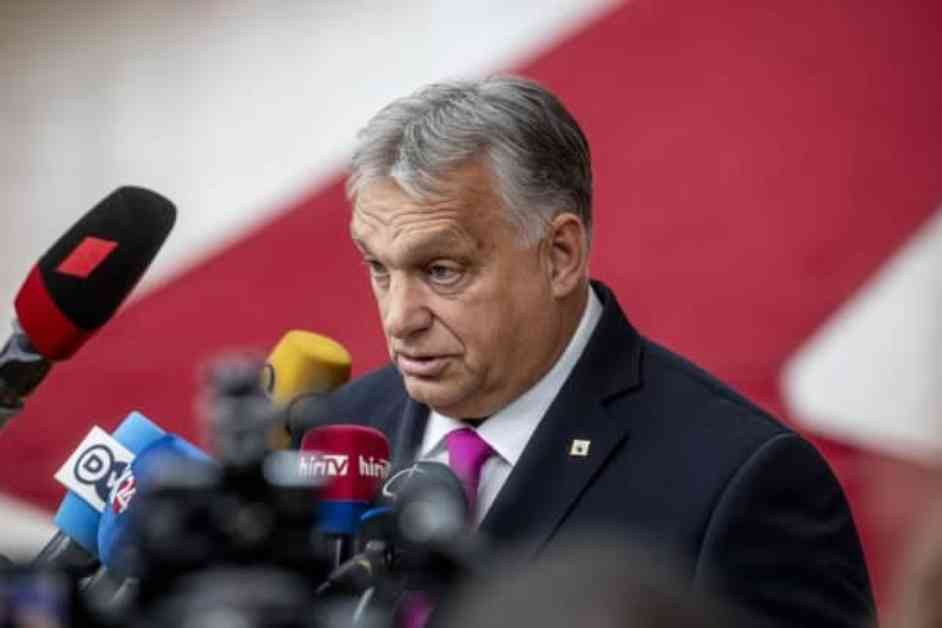Kyiv Blocks Russian Gas Transit to Hungary, Impact on Putin’s Profits – London Business News
Hungary has recently stirred the pot in the ongoing conflict between Ukraine and Russia by attempting to navigate a tricky path in the gas transit situation. The Hungarian Prime Minister Viktor Orban, known for his pro-Vladimir Putin stance, has proposed a rather interesting concept regarding gas ownership and transit through Ukraine. Orban’s suggestion revolves around the idea that once gas is purchased by Hungary, it should be considered Hungarian rather than Russian, thereby enabling its passage through Ukrainian pipelines. This proposed maneuver has not been well-received by Ukrainian President Volodymyr Zelensky, who is adamant about preventing Putin from reaping additional profits from gas exports or allowing Russian gas to flow through Ukraine.
Hungary’s Gas Gambit and Ukraine’s Stand
Orban’s allegiance to Putin is evident in his efforts to impede EU support for Ukraine and hinder Western sanctions against Russia. Despite Budapest’s existing gas contract with Russia, tensions have escalated with the imposition of sanctions by the US on Gazprom and Moscow-based banks. Hungarian Foreign Minister Peter Szijjarto has taken a bold stance against the US sanctions, labeling them as an encroachment on Hungary’s sovereignty and a threat to energy security.
Slovakia’s Stance and Potential Conflict
Meanwhile, Slovakia finds itself entangled in the gas dispute, with Prime Minister Fico set to engage in discussions with Putin regarding gas supplies. Fico’s pro-Putin stance has heightened tensions, with threats of a “serious conflict” emerging if Russian gas is blocked from flowing through Ukraine to Slovakia. The Kyiv Independent reported Fico’s strong words against President Zelensky at the EU summit, emphasizing the looming gas crisis and hinting at possible retaliatory measures by Bratislava.
The Global Ramifications
The evolving situation in Eastern Europe underscores the intricate web of alliances, energy dependencies, and geopolitical maneuvering at play. With Hungary and Slovakia entangled in the gas transit dilemma, the repercussions extend beyond regional boundaries. As the world watches the unfolding drama, the implications for Putin’s profits and Russia’s strategic interests remain a focal point of concern.
In the midst of these complex geopolitical dynamics, the human cost of these power plays cannot be overlooked. The ordinary citizens of Hungary, Ukraine, Slovakia, and beyond are the ones who bear the brunt of such political maneuvers. As leaders engage in high-stakes negotiations and brinkmanship, it is essential to remember the human lives impacted by these decisions. Whether it’s the heating bills of families in Budapest, the energy security of households in Kyiv, or the diplomatic tensions affecting businesses in Bratislava, the ripple effects of these actions are deeply felt on a personal level.
In a world where headlines often focus on the power plays of politicians and the strategic calculations of nations, it is crucial to remember the human stories behind the geopolitical drama. As we navigate the complexities of energy politics and regional conflict, let us not lose sight of the individuals whose lives are intertwined with these larger narratives. The gas transit saga in Eastern Europe is not just about profits and power—it is about the everyday struggles and aspirations of people striving for security, stability, and a better future.




